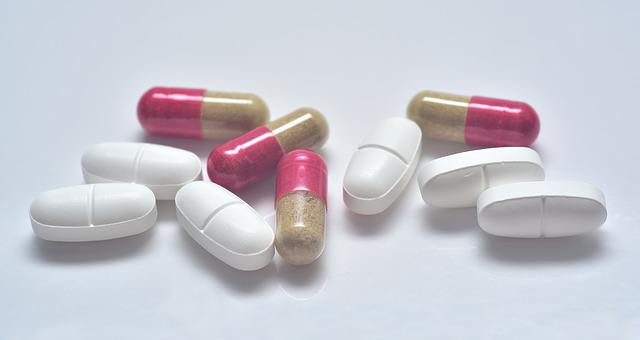What Supplements Reduce Inflammation In The Body?
Inflammation Overview
Inflammation is a normal body response to injury, but chronic inflammation can be harmful. However, certain supplements might reduce inflammation in your body. So, what supplements reduce inflammation in the body? One such supplement is turmeric, or Curcuma longa, which has been used for its medicinal properties for centuries. The active ingredient in turmeric is curcumin, which can lower levels of certain inflammatory markers in the blood and improve symptoms of osteoarthritis and rheumatoid arthritis. Another supplement that may reduce inflammation is fish oil, which contains omega-3 fatty acids that have anti-inflammatory effects on the body. Fish oil supplements are also associated with lower levels of C-reactive protein (CRP), a marker of inflammation in the blood. While there isn’t enough evidence to recommend taking fish oil supplements specifically to reduce inflammation at this time, it’s worth noting that they provide many other health benefits as well.

What supplements reduce inflammation in the body?
Supplements are typically taken orally, and they’re not regulated by the FDA. This means they don’t have to go through rigorous testing before you can buy them. Supplements are not meant to replace a healthy diet, lifestyle, or exercise routine—for example, if you have an autoimmune disease and are taking medications that suppress your immune system (like steroids), it’s important not to take supplements that increase inflammation in the body. Supplements may interact with some medications; always talk with your doctor before starting any new supplement regimen and make sure they know what supplements you’re using so there aren’t any surprises for either of you!
Here are some supplements that reduce inflammation in the body.
If you’re looking for natural ways to reduce inflammation in your body without relying on overpriced painkillers or medications from your doctor then consider adding these supplements into your routine:
Turmeric
The list of health benefits for turmeric is growing by the day. It’s a powerful anti-inflammatory, antioxidant and anti-aging agent that also helps to fight off cancer cells. Turmeric has been used in Chinese and Ayurvedic medicine for thousands of years, but it wasn’t until recently that researchers were able to confirm how effective it was as an anti-inflammatory agent. In fact, one study found that curcumin (found in turmeric) was just as effective as ibuprofen at reducing muscle pain after exercise!
Get It Here! Here’s another alternative!
Bromelain
Bromelain is a proteolytic enzyme found in pineapple, and it has anti-inflammatory properties. Bromelain is often used in over the counter medications to reduce swelling and pain.
Bromelain might ease sinusitis-related cough and nasal congestion. It could also help with allergy symptoms, swelling and irritation.
➭ Stay Informed On Things That Matter!
• How Common Is Capgras Syndrome?
• How Mental Health Affects Society?
• Benefits Of Online Therapy
Fish Oil
Fish oil is a good source of omega-3 fatty acids, which are known to reduce inflammation in the body. Omega-3 fatty acids can be found in fish oils such as salmon, sardines and anchovies. Fish oils are also an excellent source of vitamin D and E. Fish oils help you to maintain healthy joints and bones, control blood pressure levels and lower cholesterol levels in your body.
Get Fish Oil To Reduce Inflammation! Find another alternative right here.
Ginger
Ginger contains anti-inflammatory, and antioxidant properties. It’s believed to improve general immunity as a result of this. Ginger is used as a daily healer across both conventional and complementary medicine. You’re likely aware to know about ginger as a cold and sore throat natural treatment. Because of it’s rich anti-inflammatory properties ginger is highly considered when treating different type of arthritis.
Add Ginger To Your Daily Routine And Start Seeing The Changes!
Magnesium
Magnesium is a mineral that is important for many functions in the body, including metabolism, muscle and nerve function, and bone health. Magnesium helps regulate blood sugar levels and may help prevent diabetes. The average adult should get 310 mg of magnesium each day through food or supplements.
Magnesium has been used to treat high blood pressure (hypertension) since early 1900s. Some studies show that taking magnesium by mouth may lower your risk of heart disease or stroke if you already have high blood pressure; however, it is not clear if this effect happens in people who do not have high blood pressure yet but instead only have slightly elevated levels of potassium inside their cells—a condition called hyperkalemia.
It’s Up To You
There are more than 500 different types of arthritis, and it affects 50 million Americans. The most common forms are osteoarthritis (OA), and rheumatoid arthritis (RA). Arthritis is not the only form of inflammation in the body, but it’s somewhat really common for most of us. Even though you may have tried some of the other supplements that I mentioned in this post, I recommend giving them a second chance, maybe add more than one and have a combination of supplements (there are mixtures of supplements that you can also get just by adding one bottle to your daily routine) first because they’re easier on your body and they have less side effects than prescribed medications. If you’re still unsure, please talk to your doctor beforehand.

Anti-inflammatory supplements are important to keep chronic inflammation at bay.
One has to be careful in identifying high-quality supplements. They are not approved by regulatory agencies.
You have picked out some powerful supplements to help.
Turmeric curcumin is on my kitchen shelf and is used every day in curries. We get them from the place which actually produces them organically and it carries GIS. The smell and color are very different if I procure them from stores or pharmacies here.
Ginger is a great anti-inflammatory supplement. Drink a cup of lemon-ginger honey for cough. I chew fresh ginger almost every day (a small piece).
Omega-3-oil is a difficult one for me to buy and preserve. It smells after some time. Eating salmon every week (once or twice a week works as an alternative).
Magnesium is required for many biological reactions in our bodies. With the earth depleting Magnesium from the soil, the foods carry less magnesium these days. It’s ideal to supplement the body with the right amount and with the right salt form. It’s better to get advice from your doctor.
Eat healthily, drink enough water, exercise, get adequate vitamin-D from sun/and/or supplements/fortified food to help your health.
A lot of supplements are not FDA approved, but that doesn’t mean that they are no good. I do agree with you that one has to be careful with what we put into our bodies.